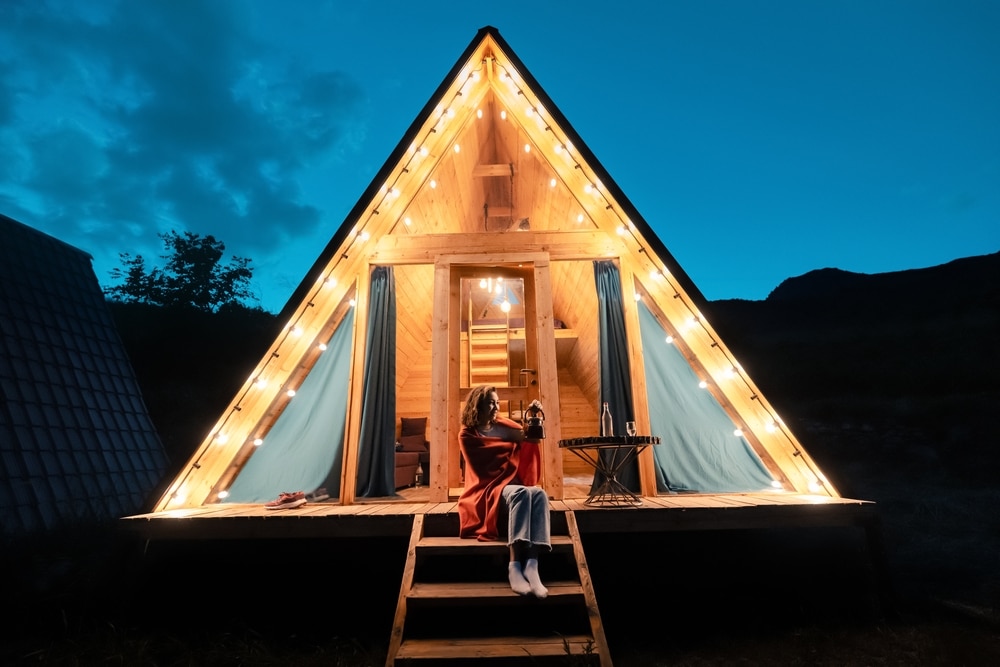More RV parks nationwide are undergoing a transformation into upscale resorts, incorporating hotel-like amenities and services. This evolution allows them to charge premium rates, marking a lucrative shift in the camping industry, a hotel industry expert says.
In an insightful opinion piece by Anthony DiPonio, an associate at Hotel & Leisure Advisors, the rising popularity of camping and its positive impact on the recreational vehicle (RV) resorts market is examined.
Emphasizing the significant transformation in the way camping is perceived and experienced today, DiPonio delves into the reasons behind this shift and the beneficial implications for private campground owners and RV park operators.
With the COVID-19 pandemic prompting a considerable increase in first-time campers, the trend of camping has witnessed a surge in popularity in recent years.
Not just a fleeting fad, this trend has sustained momentum, leading to more people seeing camping as an affordable, easily accessible vacation option. This spike in interest from both newcomers and seasoned camping enthusiasts has led to an intriguing evolution in the RV and camping industry.
Many RV parks have begun a metamorphosis, converting into full-fledged resorts by adding a myriad of amenities. This transformation, which redefines the conventional camping experience, has enticed developers and investors alike, marking an upbeat period for the industry. Private campground owners and RV park operators have a prime opportunity to capitalize on this renewed interest in outdoor hospitality.
The 2023 North American Camping Report by Kampgrounds of America, Inc. (KOA), reflects this upward trajectory. Despite a slight dip in first-time camper households in 2022 from the previous year, active U.S. camping households have experienced consistent growth. Furthermore, the 2022 Recreational Vehicle Industry Association’s (RVIA) report indicates that the RV industry significantly contributes to the U.S. economy.
This robust growth pattern, combined with burgeoning consumer demand, points towards an escalating need for expanded facilities in both public and private campgrounds.
Private campgrounds, in particular, hold the advantage here due to their greater scope for expansion and improved amenities. These sites have piqued the interest of private equity firms, with their potential for high returns on investment making them appealing ventures.
Delving into the emerging trends transforming RV resorts, DiPonio highlights some of the significant changes.
Increased types of overnight options, such as offering a variety of cabins and “glamping” sites, are on the rise. The popularity of glamping – glamorous camping – has soared, with luxurious accommodations like yurts and treehouses providing a more upscale experience, often at rates comparable to hotels and resorts.
Moreover, RV resorts are now adopting a more comprehensive approach to ensuring comfort and convenience. Gone are the days when camping was synonymous with “roughing it.” Instead, modern RV resorts offer full-hookup sites, Wi-Fi connectivity, on-site dining options, recreational facilities like waterparks and fitness centers, and enhanced outdoor spaces. Such amenities not only attract more campers but also entice them to extend their stays, ensuring repeat business.
These trends and amenities, DiPonio points out, are evident in RV resorts like Camp Fimfo, Great Escapes, Camp Margaritaville, and Coachella Lakes RV Resort, to name a few. These resorts have expanded their premises and added unique offerings to their facilities.
What does this mean for private campground owners and RV park operators? Beyond just the evident surge in demand, it’s the blurring of lines between hotels/resorts and camping sites that’s intriguing.
With the addition of hotel-like amenities and services, RV parks are now able to command higher prices, making camping a more lucrative business than ever.
DiPonio predicts a promising future for camping, driven by the continued influx of younger demographics and the sustained interest in outdoor living.
As RV resorts continue to evolve, meeting the shifting demands of their guests, they are well-poised to compete with traditional hotels for the leisure travel market during peak seasons. In this era of renewed interest in camping, private campground owners and RV park operators stand at the forefront of a potentially profitable wave of change.


